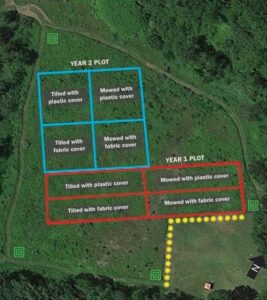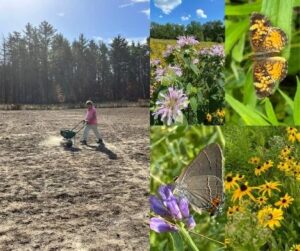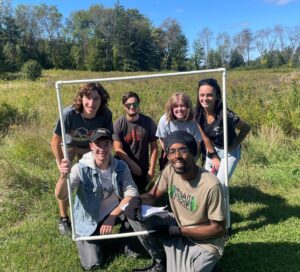(by Parker Schuerman)

- Improve native seed dispersal within the plots.
- Increase diversity and competition.
- Provide disturbance to increase solar gain earlier in the spring.
- Increase cover and protection for established perennial plants.
- Encourage the deepening of native perennial root establishment.

The rectangle plot in the map has had two growing seasons to grow, and the square plot has had one growing season. The picture describes the treatments before native seeds of grasses and forbs were planted (click to enlarge). When the plastic and fabric were pulled off the plots (see photo of Diane De Luca spreading seed) a mix of native grasses and wildflowers were chosen to be seeded in, to improve insect pollinator habitat (bees, wasps, moths, butterflies, ants, etc. See photos demonstrating plants and pollinators thriving in our meadow.)
Professor Palm and her NHTI students used our meadow restoration site as an opportunity to learn to identify native plants, study ecological research methods, and perform data analysis. NH Audubon hopes to use the NHTI student’s results to inform future management decisions both within and outside the plots as we seek to expand and improve native diversity of plants and insects and remove invasive plant species.

The initial preparation and planting project was funded by a Moose Plate grant from the State Conservation Commission and an anonymous donor. Support for the continued management of this meadow for all to enjoy comes from you, our members – thank you!
